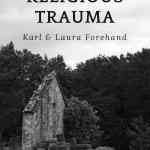 House Blessings and seasonal busyness has prevented regular blog updates — yet, this piece, sent to me a while back by Jean-Michel, is interesting: An interview of Bishop Artemije of Raska and Prizren to daily Danas (translated from serbian policy site).
House Blessings and seasonal busyness has prevented regular blog updates — yet, this piece, sent to me a while back by Jean-Michel, is interesting: An interview of Bishop Artemije of Raska and Prizren to daily Danas (translated from serbian policy site).
Q: It is well-known you aren’t an ecumenist. What is your opinion about the Ravenna statement adopted by members of joint theological commission of Roman Catholic Church and Orthodox Church.
A: Why wouldn’t we say the other way – I’m against ecumenism because I think such a fashion of ecumenism is damaging the purity of Orthodox Faith and will not lead to the healthy union of Christians, than to dilution of the Orthodox Faith and weakening the piousness of the Orthodox Christians. Though Ravenna Document is available, the hierarchy of the Serbian Orthodox Church have not been officially informed by those present in Ravenna what happened there, what was signed, what the paper actually means and what competencies and to whom it offers. In any case, I think that the fashion that some representatives of Serbian Orthodox Church, regardless empowered or not, signed on our behalf something without the authorization of the Council or Synod, is not binding to anyone in Serbian Orthodox Church, as long as it didn’t pass through the meeting of the Holy Council.
Q: Generally speaking, what’s the attitude of SOC about the primacy of Bishop of Rome, although the Ravenna Statement isn’t explicit if it was primacy of honor only, or of authority, too.
A: It is absolutely unacceptable to any Orthodox soul, not only for the entire SOC, since when we speak about Papal primacy we know it is only one of the reasons causing Roman Catholic Church to apostate from the Church of Christ in 1054. Among the other, never have the Bishop of Rome had the primacy in the Orthodox Church in the sense that’s been applied by Roman Catholics today and tried to be imposed on everybody else. As the Bishop of Rome, he had the primacy of honor for the significance of the city where he resided, which was the capital of the Empire in Christ’s time, the entire known world of that time. We cannot even speak about the issue of honor today, because he is not a bishop of the Church until the unity in Faith is achieved. The unity in faith between the Roman Catholic and Orthodox is still very distant.
Q: One could conclude there are various theological views within Orthodoxy about co-operation with RCC, since Orthodox theologians participated in the works of Joint-Commission while the document has been harshly criticized by their brothers.
A: There exist only those persistent in their exposition of Faith and those ready for various kinds of compromise and economia. Many Orthodox participants at those ecumenical gatherings are not confessors of their faith, accordingly, they can’t represent the teaching of the Orthodox Church. If they were really representatives of the Orthodox Church and Orthodox Faith, they would, above all, listen to the Apostle Paul whom says: “stay away from a heretic upon first and second approach”. How long are we going to attend those dialogues, commissions – until eternity? Are we counseling there those in heresy, in error? No, we are seeking the compromise with them. True love of a Christian is to provide eternal life to a neighbor, meaning one needs to say straightforwardly and frankly that another one is in error and try to get him back to the truth and direct him to the path towards salvation. Approving someone to remain in his error is not love, it is hatred of a man, according to St. Maximos the Confessor.
Q: If you say that the unity can be reached only if another party repents, Roman atholics say that “nobody is sinless” – how could that be solved?
A: Nobody is sinless in the sense of personal sins, but in the sense of confession of the Faith, the Orthodox Church have erred nothing. That’s the Church of Apostles, Church of the Fathers, Church of Ecumenical Councils, holding the truth once delivered by Lord Christ, through the Apostles which was delivered to us unhampered, while there is no doubt that Roman Catholic Church in many segments of Faith and particular dogmas is away from the right path. Without the unity in Truth, in true Faith, is not possible to speak about the Bishop of Rome at all, even less about his primacy – either of honor or of authority.
Q: How could Orthodox know they erred nothing?
A: From the history of Church, from the teaching of the Holy Fathers, Holy Canons, Ecumenical Councils. It isn’t an arbitrary allegation, than the continuity through two thousand years, proving this is the Faith preached by Lord Christ and Holy Apostles.











